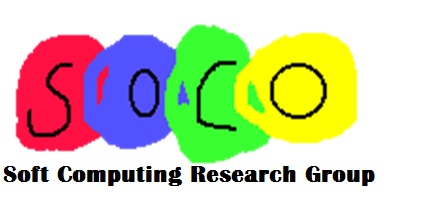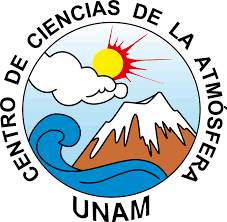The paper submission deadline has been extended by 15 days, to 30 Jan 2020.
Important: To submit a paper to this special session please access https://wcci2020.org/submissions/, chose FUZZ-IEEE conference and select as Main research topic SC17: Computational Intelligence for Local Decision Support and Explainability in Climatic Change
Motivation and Scope
In the current situation in which Climatic Change (CC) is a reality, governments have many challenges to address and must be able to act to mitigate the consequences derived from it. Although the global world must fight together against CC, in each country, region and city the CC will affect in a different way, and therefore will have to be prepared accordingly. While in some places there will be droughts, in others there will be floods and in all of them there will be changes in the productive structures and all this will be aggravated little by little and, what is worse, will happen simultaneously to all the planet. What management can or should politicians or decision makers do to prepare their regions or face the consequences of the CC? The resilience of the population and cities to climate events is a fundamental issue for governments. These need tools that help them answer questions such are, for example: – What actions must be carried out in our environment in order to obtain a certain level of desirable resilience? – How much time is needed to achieve this level of resilience taking into account the current economic situation together with the institutional willingness to apply the resources necessary for this purpose? Currently precise models to predict global climate change scenarios are available, but the local vision is rarely addressed. Local politicians need tools to work with the different scenarios and know what they are facing. These tools allow to provide reliable estimates at different scales, that is, at national, municipal or housing levels. CI can provide tools to help decision-making in this area and to offer explainable models. This special session aims to show the recent developments in the field of computational intelligence in the face of the challenge of climate change. Topics of interest include, but are not limited to:
• Computational intelligence techniques to study the impact of CC
• Multi-criteria approaches to model vulnerabilities in CC scenarios
• Computational intelligence approaches to measure CC vulnerabilities
• Explainable computational intelligence in the CC context
• Fuzzy control for CC scenarios
• Hybrid systems of computational intelligence techniques in climatic change challenges
• Increasing resilience to climate change using CI adaptive management approaches
• Fuzzy rule-based downscaling in the context of CC
• Neural networks for downscaling in the context of CC
• Interpretable machine learning models in the CC context
• Decision-support systems to achieve a resilience objective
• Fuzzy modeling of climate change impacts
• Models for explainable recommendations in the CC context
• Downscaled climate projections suitable for resource management
If you have any questions regarding this special session, please contact Dr. Àngela Nebot at angela[at]cs.upc.edu
Chair: Dr. Àngela Nebot, Computer Science Department, Universitat Politècnica de Catalunya – Barcelonatech (UPC)
Dr. Àngela Nebot earned her Ph.D. degree in artificial intelligence from the Universitat Politècnica de Catalunya – Barcelonatech. She is the head of the Soft Computing (SOCO) research group and a board member of the Intelligent Data Science and Artificial Intelligence (IDEAI) research Centre at the UPC. She is currently Associate Professor at the Department of Computer Science, giving lectures on Computational Intelligence and Advanced Topics in Computational Intelligence at the Artificial Intelligence Master’s degree. Her current research interests include fuzzy, neuro-fuzzy, genetic-fuzzy systems and other soft computing hybridization techniques, modelling for prediction and decision support. The application areas include climatic change, energy, medicine, biology, music, risk management and e-Learning. She has published more than 40 articles in international research journals, more than 20 book chapters and more than 120 papers in international congresses. Dr. Nebot is a member of the Editorial Board of the International Journal of General Systems and collaborates as a reviewer in multiple international journals, such as Artificial Intelligence Communication, Artificial Intelligence in Environmental Engineering, Neurocomputing, IEEE Transactions on Fuzzy System and Fuzzy Sets and Systems, among others. She is also reviewer of research projects from the Ministry of Science, Innovation and Universities of Spain and of the European Regional Development Funds, among others.
Co-chair: Dr. Carlos Gay, Universidad Nacional Autónoma de México (UNAM)
Dr. Carlos Gay is the coordinator of the UNAM Climate Change Research Program, Mexico’s City Climate Change Virtual Center, and the Climate Change and Radiation of UNAM’s Atmospheric Sciences Center. He is also President of the Consultative Council on climate change of the Inter-secretariats Commission for climate change, and a COP 16 academic Subcommittee member in support of Mexico´s government.
Co-chair: Dr. Francisco Mugica, Computer Science Department, Universitat Politècnica de Catalunya – Barcelonatech (UPC)
Dr. Francisco Mugica is an Energy Engineering from the “Universidad Autónoma Metropolitana” (UAM), Mexico. He received a master degree on Computer Science in 1984 from the “Instituto Tecnológico y de Estudios Superiores de Monterrey”, Mexico. In 1995 he received the Ph.D. degree in Artificial Intelligence from the Technical University of Catalonia (UPC) in Barcelona, Spain. From 2003 to 2009 was the head of the Center of Studies in Communication and Educational Technologies (CECTE) of the International Latin-American Institute of Educative Communication (ILCE), Mexico. Afterwards he became a researcher and computer science teacher at the Universitat Politècnica de Catalunya – Barcelonatech (UPC). His current research is focused on the development of soft computing methodologies for modeling, simulate and control complex dynamical systems. His application interests are distance education, biomedicine and atmospheric sciences. He worked as a researcher in the “Departamento de Energía Nuclear” of the “Instituto de Investigaciones Eléctricas” and in the “Centro de Investigación en Ciencia Aplicada y Tecnología Avanzada” (CICATA) of the “Instituto Politécnico Nacional” (IPN), both in Mexico. He has been the leadership of several research projects and published a large number of scientific publications.


